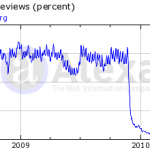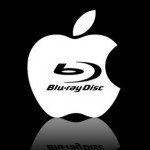Weekly News Roundup (4 July 2010)
It’s been a busy week on my end. The first piece of good news is that my Samsung 3D TV finally arrived, and it was delivered to me on Wednesday. I haven’t had much time to play around with it, but early impressions are very good indeed. Not sure I’m a huge fan of the 3D though, I’ve always felt it was a bit gimmicky, but I’m only buying the TV for the 2D – the 3D is a nice bonus that will keep me entertained for a bit and allow me to experiment with a few things (like perhaps providing some 3D trailers for you all to download in the near future). I also got a bit of work done, to my surprise. The much delayed NPD US video games sales figures for May were finally made available, and my analysis of it is here. No big surprises, but the video game industry is not immune to economic conditions, and so is still suffering. June will be interesting because the Xbox 360 “Slim” went on sale in the middle of the month, and we have the E3 hype as well. And in terms of other news, there were a few as well, so let’s get started (and finish quickly, so I can go play with my new TV).

Let’s start with the copyright news. A couple of weeks ago, the judge in the isoHunt copyright cased allowed the MPAA to submit keywords that would be censored on the BitTorrent search engine, but now the founder of isoHunt, Gary Fung, says that instead of trying to stop piracy, it’s now bordering on censorship, or at least an attempt to completely cripple isoHunt, even for the legal stuff.
Part of Fung’s argument is that very keywords include common words such as “21” or “Dad”, as these are words used in movie titles. If you had a list of every movie title, then surely that would cover so many words as to make the search engine completely non effective. A more logical and fair way to do it would be to remove common words from the list of “banned” words, and to only block phrases, as opposed to just words (so “Born on the Fourth of July” would get blocked, but the keywords “Born”, “Fourth” and “July” aren’t blocked). But this decision was never about logic or fairness. It’s interesting to analyse the decision again given the recent YouTube ruling. Of course, YouTube’s main purposes contains a lot more “fair use” than say a Torrent download website, but the important aspect of the YouTube ruling was the copyright holders are partially responsible to locate and remove infringing content (after all, only they can decide what’s infringing, and what’s not), and putting it all on the website operator is not fair. So if isoHunt had a policy where they block out the obvious pirated torrents, and then add a function to allow studios to request removals of others, then that would be enough. Of course, whether isoHunt would still be viable as a commercial operation, without pirated content, is up for debate. Mininova was never the same after it removed all of its infringing content, but it’s still a relatively big website, although that may fade due to incoming links being removed and stuff.
Following last week’s announcement of a crackdown on online piracy, US Immigration and Customs (ICE) has acted quickly this week to close down and seize the assets of nine websites suspected of offering pirated content for online streaming. It’s good to see the government reacting so quickly to a current ‘crisis’, as opposed to say waiting days and weeks to get a response through. Like Katrina and BP’s Gulf of Mexico disaster. It’s good to know where the US government’s priorities are in these dangerous times, what with Hollywood studios on the verge of bankruptcy and everything. The other crime wave affecting the US right now is of course college students downloading films. And this is why Congress in 2008 passed the Higher Educational Opportunity Act which, amongst other things, forced educational institutions to join the fight against online piracy, or face the risk of losing federal student aid. This act has now come into effect. So if US colleges don’t spend their own money and time stopping students from downloading The (new) Karate Kid, then they’ll lose funding and will have to close down. Sounds like a fair compromise to me, risking education of the next generation to prevent them from downloading MP3s. It’s definitely fair to the music labels and movie studios, who don’t have to move an inch now and can get colleges to do their anti-piracy work for them, all for the price of a few lobbyists.
This week was also when the judge overseeing one of the US Copyright Group’s mass lawsuits was to decide on a challenge from the ACLU/EFF as to the legality of putting so many defendants in the same lawsuit. Unfortunately, the US Copyright Group won their motion, although the ACLU/EFF also had a few victories of their own. So the judge has decided it is okay to put a bunch of people together, most of whom have never communicated directly or indirectly with each other, in the same lawsuit. But the USCG must now also work wit the ACLU/EFF to draft a warning notice (to forward to people listed in the lawsuit), and this is where the ACLU/EFF will ensure that the notice contains plain English and perhaps contain language that doesn’t scare people into paying for the pre-trial settlement, if they really do believe they’re innocent. The judge also ruled on Time Warner Cable’s motion to quash the subpoenas, as it violated a previous agreement with the USCG to limit the number of requests per month. The judge ruled just shy of a complete quashing, but did rule that the agreement was valid and that the USCG must limit request to 28 per month, which should really slow down USCG’s efforts (although they’ll probably just pick IP addresses from other ISPs to “sue”).

Onto HD (3D) news (I really should update the “section graphics” to your left, or above if you’re reading the newsletter, to include 3D). For those hoping Blu-ray would arrive soon on the Apple range of hardware, well, your wish is unlikely to be answered.
Apple boss Steve Jobs has once again, this time in an email, showed his disdain for the Blu-ray format, predicting it will be beaten by digital downloads and streaming services. He compared Blu-ray to all those “failed” HD audio formats, none of which has managed to replace CDs, let alone MP3 and other digital formats that has replaced CDs. As you may recall, he previously called Blu-ray a “bag of hurt”, due to the licensing requirements of the format. When the person communicating with Jobs stressed that Blu-ray does have uses in data and video archiving, Jobs was quick to point out that streaming and digital rentals means that you don’t need massive amounts of local storage for movies. And I guess for data archiving, with the price of external HDDs dropping so quickly, these offer good portability, and excellent value for money, compared to Blu-ray discs, you have to say. Even USB drives are approaching capacities beyond that of your typical dual-layer Blu-ray, which may explain why the Blu-ray people have added BDXL and larger capacity discs to the specifications (unfortunately, they’re not backwards compatible, so new burning hardware is needed to take advantage – a disadvantage that USB drives don’t have).
I could have put the next piece of news under gaming, but it’s probably more relevant here. The much rumoured Hulu subscription service is now a reality, and it’s coming to a whole host of devices, including the PS3, Xbox 360, and TV and Blu-ray players from Samsung, Vizio and Sony. PS3 owners will be amongst the first to get it, with the $9.99 monthly cost possibly on top of the PlayStation Plus service cost (rumoured only). Xbox 360 owners may be the last to get it however, but don’t fret, the best Hulu experience may yet be on the 360, as Hulu are working to make the service Kinect compatible (so gesture, voice commands to control the Hulu interface). All of this means nothing to me because Hulu isn’t “available” in Australia, even though I have a Samsung TV and soon will have a Samsung 3D Blu-ray player (free by redemption), both of which are capable of supporting Hulu.
And a further blow to Adobe this week as adult website Digital Playground announced that they may choose HTML5 over Flash. It seems a lot of websites now have to make the choice, because supporting both may be expensive, and Google’s WebM/VP8 now means websites don’t have to sacrifice quality (too much) if they choose the HTML5 codec.
![]()
And finally, in gaming, a new PS3 firmware is available. Firmware 4.0 adds Facebook support and support for the new subscription based PlayStation Plus platform. After criticizing Xbox for asking users to pay for Xbox Live Gold, it seems Sony finally saw the light and decided to have a go at their own premium platform.
Luckily, multiplayer gaming is still free, as are many other features, but as speculated above, some of the premium features like Hulu may require the Plus platform.
A brief look at Amazon shows that Kinect is still selling better than Move. But the latest news is that Kinect may only offer two player simultaneous play, even if it does support tracking of up to 6 players. What this means is that up to 6 players can “join” the game, but 4 will have to wait their turn at any one time, while two can play. The limited angle of the camera lens may be responsible, as well as the hardware requirements of processing too many people at the same time. This would appear to make the Wii or Move the platform of choice for 2+ player motion gaming, but the PS3 only supports 7 connected devices, including any other controllers or wireless devices, so 4 player simultaneous play with both Move and Navigator (“remote” and “nunchuck”) is not possible either. Plus it would also cost quite a bit to get it going. Of course, there’s still no actual official confirmation, the information on hand is from leaked specifications which may or may not be final. But since none of the demos so far has been for four players, and the limited angle of any camera system, I suspect this to be true.
And that’s the news for this week. More for you next week I should hope. Until then, have a good one.
Oh, almost forgot to mention that today, 4th of July, is a very special day indeed. Yes, it is the birthday of Digital Digest, in its 11th year. I don’t plan on making a big deal of it like last year, so much so that I’ve nearly forgotten!



